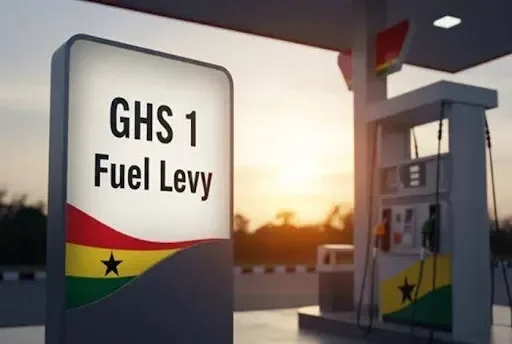The International Perspective for Policy and Governance (IPPG) registers its deep concern over the recent passage of the Energy Sector Levies (Amendment) Bill, 2025, which, among others, introduces an additional GHC 1 Energy Sector Shortfall and Debt Recovery Levy (ESSDRL) per litre of fuel under the Energy Sector Levies Act (ESLA).
As a non-partisan public policy think tank dedicated to promoting sustainable development, fiscal accountability, and inclusive governance, IPPG is compelled to speak out on what appears to be, yet another tax measure imposed without adequate public consultation or transparent justification.
Lack of Stakeholder Engagement Undermines Credibility
The swift passage of the levy with limited input from the public, civil society, and key industry actors represents a missed opportunity for participatory governance. Broader consultation is a basic principle in sound policymaking and legislative processes.
The decision to raise fuel levies, bringing total tax and levy components to over 26% of the ex-pump price undermines public and stakeholder trust, regardless of the recent decline in fuel prices due to the recent appreciation of the Ghana cedi against the U.S. dollar.
According to Mr Seth Owusu-Mante, IPPG Research Fellow, “trust is built not only on outcomes but on the transparency and inclusiveness of policy processes and in this case, that was lacking”. IPPG aligns with concerns raised by other civil society organisations that the absence of engagement violates the spirit of inclusive and democratic policymaking.
A Threat to Ghana’s Energy Transition Goals
IPPG is especially concerned that the new levy extends to Liquefied Petroleum Gas (LPG), despite ongoing government efforts to promote clean cooking through the Cylinder Recirculation Model (CRM) and a national LPG penetration target of 50% by 2030.
This policy contradiction threatens to:
- Disincentivise LPG adoption among low-income households.
- Reverse progress made in reducing dependence on biomass fuels, particularly charcoal and firewood.
- Undermine Ghana’s commitments under the SDGs and Nationally Determined Contributions (NDCs) for climate action.
ESLA: A Decade On, But Debt Persists
As of January 2025, petroleum products in Ghana were subject to 11 different taxes and regulatory margins, several of which fall under the ESLA framework. Despite the significant cumulative revenues mobilised through these levies, Ghana’s energy sector remains in a state of fiscal distress.
It is deeply concerning. Mr Owusu-Mante observes that “nearly a decade after the enactment of the Energy Sector Levies Act (ESLA), Ghana’s energy sector remains burdened by deepening indebtedness. Despite the substantial revenue mobilisation through these levies, the sector remains financially unstable, hindered by persistent government inefficiencies. This disturbing pattern raises legitimate questions about the efficacy, accountability, and strategic coherence of ESLA as a debt management tool”.
Our Recommendations and Call to Action
While indications suggest the levy may not be withdrawn, IPPG maintains that its implementation must be grounded in rigorous oversight, transparent reporting, and alignment with broader energy policy goals. In light of these pressing concerns, we call on the government to take the following immediate actions:
- Conduct a retrospective (ex-post) Regulatory Impact Assessment (RIA) to evaluate the socio-economic effects of the new levy, including its impact on inflation, the operations of oil marketing companies (OMCs), LPG adoption rates, GPRTU operations, and consumer welfare, and implement measures to address any potential adverse outcomes.
- Introduce a clearly defined sunset clause for the levy, along with a framework for regular review and public reporting. This will ensure the levy is time-bound, periodically evaluated for effectiveness, and not allowed to persist indefinitely without accountability or results.
- Institutionalise meaningful stakeholder engagement in all policy and legislative processes across the energy sector and other economic sectors to ensure policy decisions reflect diverse perspectives, uphold public trust, and embody principles of participatory governance.
Take concrete steps to address the deep-rooted inefficiencies and financial leakages within the energy sector as a long-term solution to its structural challenges and refrain from using levies as a recurring substitute for improved sector governance.

